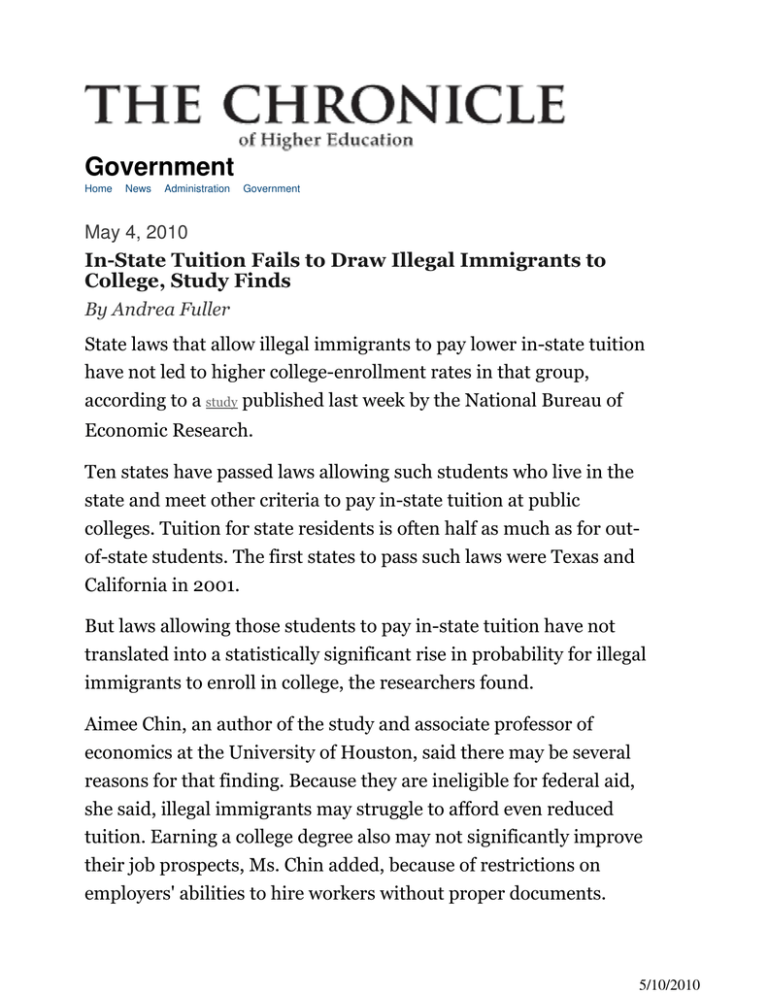
Government
Home
News
Administration
Government
May 4, 2010
In-State Tuition Fails to Draw Illegal Immigrants to
College, Study Finds
By Andrea Fuller
State laws that allow illegal immigrants to pay lower in-state tuition
have not led to higher college-enrollment rates in that group,
according to a study published last week by the National Bureau of
Economic Research.
Ten states have passed laws allowing such students who live in the
state and meet other criteria to pay in-state tuition at public
colleges. Tuition for state residents is often half as much as for outof-state students. The first states to pass such laws were Texas and
California in 2001.
But laws allowing those students to pay in-state tuition have not
translated into a statistically significant rise in probability for illegal
immigrants to enroll in college, the researchers found.
Aimee Chin, an author of the study and associate professor of
economics at the University of Houston, said there may be several
reasons for that finding. Because they are ineligible for federal aid,
she said, illegal immigrants may struggle to afford even reduced
tuition. Earning a college degree also may not significantly improve
their job prospects, Ms. Chin added, because of restrictions on
employers' abilities to hire workers without proper documents.
5/10/2010
Positive Effects for One Group
The study found that the state-tuition laws had had a positive effect
on college attendance for one group of illegal immigrants: Mexican
men ages 22 to 24. Ms. Chin said that women, in general, already
have higher college-going rates, so men may be more responsive to
financial incentives to enroll. And older students have had more
time to work and save money for their education than younger
students.
The study's authors say state laws allowing illegal immigrants to pay
in-state tuition may have a greater effect on college enrollment over
time, with more students potentially learning about the laws and
becoming ready for college. The study used data on enrollment
available through 2005.
If Congress passes an immigration bill known as the Dream Act,
which would give illegal immigrants who are college students a clear
path to citizenship, then the benefits of a college education would be
much greater for those students, Ms. Chin said.
"If the Dream Act were to pass," she said, "then we're in a different
policy regime, and there could be a tremendously larger response to
these laws."
Copyright 2010. All rights reserved.
The Chronicle of Higher Education 1255 Twenty-Third St, N.W. Washington,
5/10/2010



